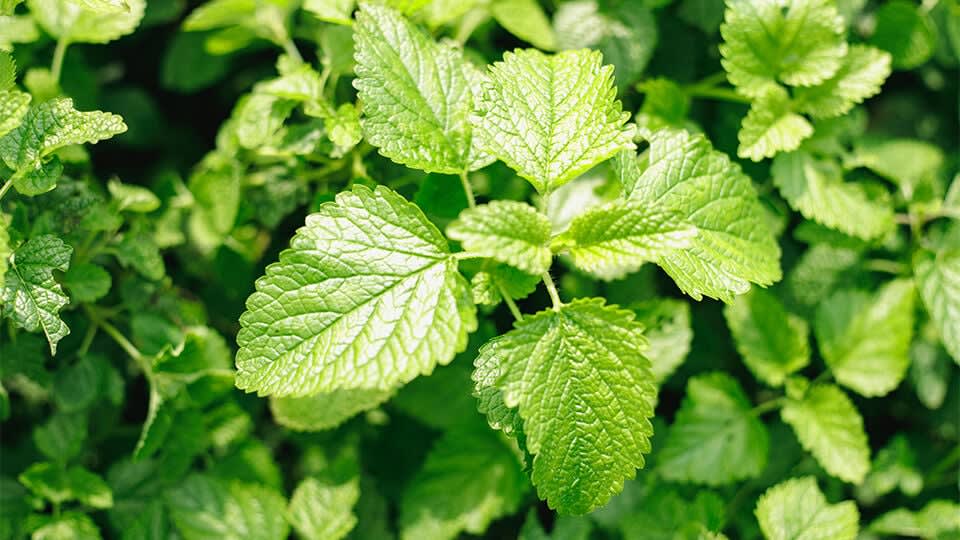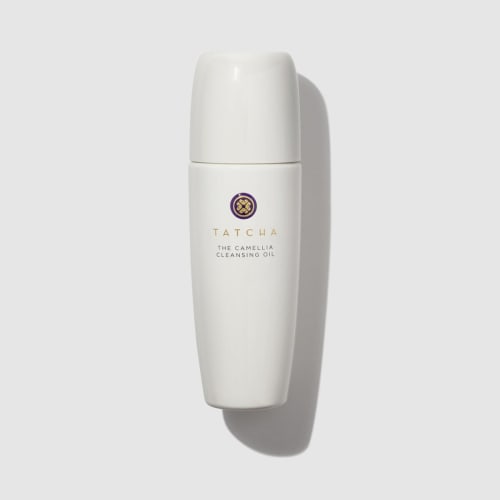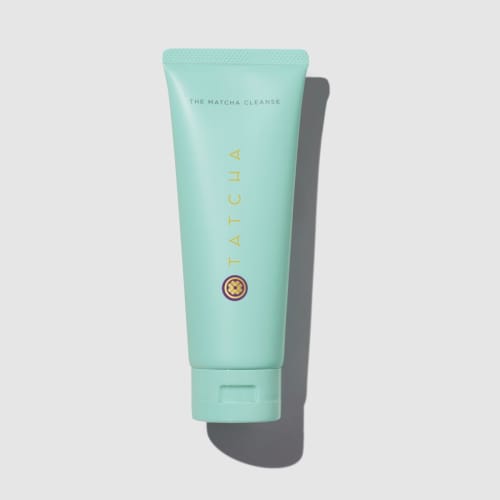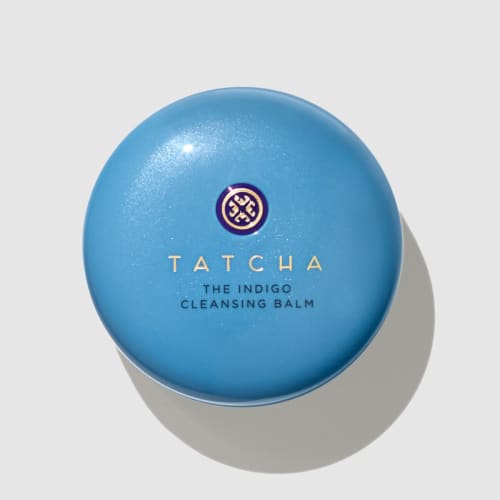The benefits of plant-based face wash are well-documented, even if the term itself isn’t as clearly defined. But starting off your routine with a botanical boost can help every skin type—even yours.

The greatest pleasures our world has to offer are often cultivated over time—from homes built to flowers grown, to friendships and love deepened by years—and are all the sweeter to enjoy for it.
This is part of the reason why plant-based ingredients are so important to Tatcha’s skincare philosophy. The advent of exciting skincare technologies have opened up worlds of possibilities for formulation, introducing new alternatives for effective therapies (like bakuchiol, a retinol alternative) and the ability to make just about any product dream a reality. But often, the brand returns to time-tested Japanese botanicals that have shown themselves repeatedly to be beneficial to skin—some with actual centuries of anecdotal evidence. These ingredients often become the centerpieces of Tatcha’s products, supported by thoughtful formulation that helps bring out their best benefits.
Especially when it comes to the act of washing skin—the foundation to one’s skincare, and in many skincare routines, the first step—certain plant ingredients can help keep skin in balance, just as they have since the ancient days of Japan. A plant-based face wash may help unlock your skin type, if you know what ingredients in particular to look out for.
The power of plants
Like many terms in the beauty lexicon, “plant-based” is not a regulated claim, and can be broadly applied to many different kinds of ingredients and products that descend from botanical origins. An aloe vera gel in the drugstore aisle is ostensibly plant-based; after all, the product is based on the natural gel of the aloe vera plant.
It’s also important to consider that many popular skincare ingredients, even those with clinical or synthetic-sounding names, are often derived from plants. Alpha hydroxy acids, those beloved chemical exfoliating agents, can come from apples or sugarcane; Vitamin C, one of the most popular skincare actives of all time, can come from citrus fruits or leafy greens. In other words, a product can be plant-based without explicitly saying so.
Still, dermatologists recommend plant-based ingredients and formulas for how gently they operate on skin compared to some synthetics. Some plants have shown to be effective in treating a variety of skin diseases and disorders. For example, did you know that marigold has been shown to have an anti-inflammatory effect on skin, or that onion extract gel can be used to minimize scars?
Even before she launched the skincare brand Tatcha, founder Vicky Tsai has been inspired by the skincare culture of Japan, where plant-based ingredients have been used for centuries in a variety of use-cases—from healing to nourishing to cleansing to fortifying skin. In fact, it was the routines of geisha performers, and the plant-based face wash and other skincare products they used, that helped inspire the creation of the brand, with the aim of bringing Japanese plant-based skincare to the world—and its many faces.
Japanese plants used for skincare
Since its inception, Tatcha has been inspired by Japanese plants, and their powerful benefits for skin. Japanese people from all walks of life have been inspired for far longer, and have incorporated plant-based ingredients into their routines for centuries.
Many aspects of Japanese culture are underscored by a deep respect for the natural world. The country’s many climates, from the tropical beaches of Okinawa to the snow-capped peaks of Hokkaido, enables a wide diversity of plant life, and often specific plants can become the pride and joy of certain regions across the archipelago. At times, Japan is referred to as a society “in harmony with nature.”
From religion to cooking to even skincare, this respect reverberates throughout Japanese culture. A few ingredients in particular have demonstrated incredible benefits when applied to skin. Many of them are still used today, and can be found in Tatcha’s product lineup.
Camellia oil. The oil from the camellia flower, also known as tsubaki, is one of Tatcha’s most cherished ingredients. Japan’s geisha have long used it in hair and skincare rituals—the performers massage the oil into hair for a sleek, lacquer shine, and onto the face to melt away thick stage makeup and keep the skin soft, too.
Green tea. You’ve probably heard of Japan’s famed tea ceremony, in which green tea is prepared from a powder; the exquisite display is one of respect, tranquility, and harmony. But green tea has also shown to have benefits to the body, including on skin, where it supplies antioxidants that help repair oxidative damage. Japan’s tea trees are native to the Uji region, known for its unique geography and mild winters; Tatcha’s proprietary complex harnesses the DNA of green tea from Uji, too.
Indigo extract. The birthplace of indigo is India, where the natural dye was dried into cakes for easy trade and transport. During Japan’s Edo period, samurai warriors wore a layer of indigo-dyed cotton beneath their armor to help heal injuries, and the dye was also favored by firefighters for its protective qualities. It has shown to have anti-inflammatory benefits for skin, which is why it appears in many of Tatcha’s sensitive skin-friendly formulas.
Rice bran. Rice is a staple of the Japanese diet—but that’s not the only way it’s used. Komenuka, or Japanese rice bran, is a source of vitamins A, B, and E, as well as a complex blend of over 100 antioxidant compounds, including omegas 3 and 6, proteins, fats, fibers, ferulic acid, and minerals.
Wild rose. Wild rose is native to Asia and has been used in Eastern medicine to treat mind, body, and spirit—its leaves used to make wound-healing salves, its petals distilled into tea for headaches. Wild rose fruits are also known for their ability to reduce the appearance of pores and also improve skin tone and texture. You can find wild rose in many of Tatcha’s clarifying products, including the best-selling Water Cream.
A plant-based face wash for your skin type
When it comes to the first step of your skincare routine, plant-based ingredients are a great way to get things started off on the right foot. The best way to wash one’s face, according to bodies like the American Academy of Dermatology Association, is to use gentle, non-abrasive formulas that are unlikely to irritate skin. These kinds of plant-based face washes will also show respect to the skin barrier by providing it with essential nourishment without taking away necessary moisture.
Your skin type can provide clues as to what plant-based face wash may work best for you. But when in doubt, and before switching up your routine, talk to your dermatologist, who may be able to recommend other plant-based alternatives.
For dry skin
The task of nourishing skin, keeping it hydrated, and washing it at the same time is not an easy one—and yet The Camellia Cleansing Oil does it well. Geisha performers would use camellia oil to keep their skin silk-soft while reapplying (and taking off) their heavy performance makeup. Distilled into a formula with Tatcha’s proprietary Hadasei-3 complex, it makes an excellent plant-based face wash for any skin type, but especially dry ones.
For oily skin
Tatcha’s new Matcha Cleanse is formulated with the incredible power of matcha, a green tea closely tied to Japanese culture. In addition to starring in tea ceremonies, matcha has also been lauded for its antioxidant activity, and has been cooled and applied as a mask for aging and tired skin. The Matcha Cleanse’s gel lathers into a lightweight foam that balances and nourishes even the oiliest of complexions in a single wash, and also incorporates Japanese mugwort, or yomogi, a plant used to calm and cleanse skin for ages.
For sensitive skin
When skin needs a little soothing, leave it to Japanese indigo, long prized for its anti-inflammatory benefits. In the Indigo Cleansing Balm, indigo is infused into a butter-soft salve that melts upon skin—and takes dirt, impurities, and makeup away with a rinse—while improving skin barrier function for stronger skin from the start of your skincare ritual. With a plant-based face wash, you put nature first—literally. Your skin will thank you.




